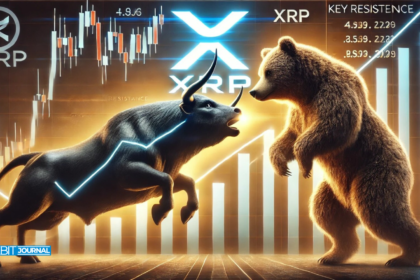The crypto world is abuzz in 2025, as the approval of the XRP ETF approval reality. With improved regulatory frameworks and legal clarity developing, analysts increasingly see September to October as the most likely time for a decision. This article outlines the recent changes, the underlying mechanics, and what they entail for institutional and ordinary investors.
SEC’s New Listing Standards Speed Up XRP ETF Approval
To qualify for an ETP or ETF, every cryptocurrency asset must have at least six months of futures trading on a regulated exchange, such as Coinbase derivatives, according to the newly announced SEC “Listing Standards”.
This replaces the former 240-day method with a more efficient 75-day review pathway, greatly cutting red tape. Once those futures levels are met, XRP ETF approval becomes far more likely. Bloomberg’s Eric Balchunas estimates the probability at 85%, with prediction markets at 86%.
In-Kind Creations and Redemptions Increase Efficiency
The SEC’s decision to allow the in-kind issuance and redemption of cryptocurrency ETPs is a significant breakthrough. This update enables approved market makers to swap ETF shares for genuine crypto tokens rather than cash, matching digital asset ETFs with commodities fund standards.

“It’s a new day at the SEC,” one official said, explaining how this change lowers settlement costs and increases liquidity. This development reinforces the case for XRP ETF certification.
Ripple’s Legal Case: The Final Barrier?
Legal clarity remains an important element. With the Ripple vs. SEC litigation still underway, ETF approval has been hampered. However, rumors indicate that both parties may withdraw appeals before the August 15 deadline, therefore removing a crucial regulatory encumbrance. If that happens, the route to XRP ETF approval might open up completely and quickly.

Institutional Interest
Ripple’s ETF hopeful status signifies a larger regulatory trend that might lead to ETFs for other altcoins, such as Solana and Dogecoin. Institutional enthusiasm is increasing, with asset managers submitting XRP ETF ideas and accelerating efforts. If authorized, the XRP ETF might be the first significant move beyond Bitcoin and Ether into mainstream digital asset investment, signaling higher legitimacy and greater access for individual investors.
Summary
The campaign for XRP ETF certification appears to be tangible by late 2025. With revised SEC listing rules, in-kind creations/redemptions, and probable legal resolutions, the September-October timeframe becomes more feasible.
If clearance is granted, it will signal a seismic shift in the way traditional banking interacts with cryptocurrencies. The potential introduction of an XRP ETF may boost institutional capital inflows, increase liquidity, and lay the stage for greater crypto inclusion into regulated markets. Readers should still treat all timetables and probabilities as expert projections rather than absolutes, but the momentum is clear.
FAQs
What does XRP ETF approval mean for investors?
It would allow investors to gain exposure to XRP through regulated investment products without holding the token directly, enhancing accessibility and security.
Why is in‑kind creation and redemption important?
This mechanism reduces costs and complexity by enabling ETF share settlements with crypto instead of cash, improving operational efficiency for issuers.
How likely is XRP ETF approval by October 2025?
Analysts estimate an 85–86% probability, assuming regulatory hurdles are cleared and futures criteria remain satisfied.
Will approval open the door for other altcoin ETFs?
Yes, under the new framework, altcoins like Solana and Dogecoin may become eligible as soon as they satisfy six months of futures trading.
Glossary of Key Terms
Listing Standards – SEC criteria that determine whether a crypto asset is eligible for ETF issuance; includes futures trading history and surveillance agreements.
In‑kind creation/redemption – ETF settlement process allowing authorized participants to exchange shares for underlying assets rather than cash.
Designated Contract Market (DCM) – A regulated venue—such as Coinbase derivatives—where futures contracts are traded; required for asset eligibility.
Futures exposure requirement – The rule that demands at least six months of publicly traded futures contracts for a crypto asset to qualify for an ETF.
Authorized participant – Institutions permitted to create or redeem ETF shares, providing liquidity and arbitrage functions within ETF structure.




























